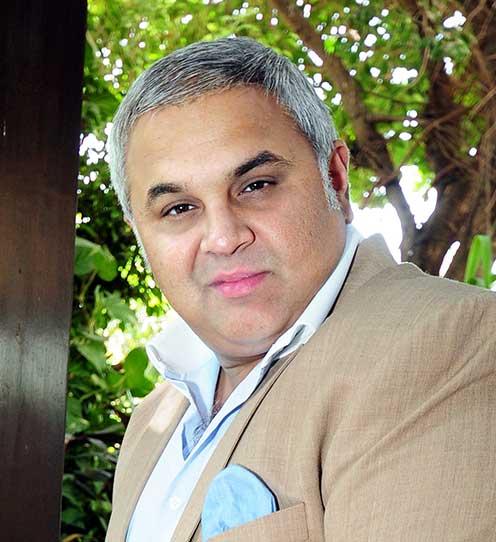How Diwan Rahul Nanda secured the TOPSGRUP business
- BY Ira Swasti
 In Strategy
In Strategy 22701
22701 0
0

HOW I DID IT
Lock, Stock and Barrel Diwan Rahul Nanda TOPSGRUP
Diwan Rahul Nanda was thrown into his family’s sick restaurant business when he was just sixteen. After six years of running and reviving it, Nanda took on another failing family business and turned it into a 93,000-people global conglomerate comprising of 11 businesses, the TOPSGRUP. With a current market valuation of $372 million, the security services giant has an impressive clientele including the Tatas, Reliance and Trident hotels. A living image of his business, the 41-year-old army kid with a doctorate in martial arts has secured an aggressive growth path for his company with a bevy of acquisitions at home and abroad.
I was born in Ranchi but I grew up in Mumbai. I was introduced to entrepreneurship very early in life. In 1987, when I was only 16, my father suffered a paralytic stroke and someone had to take over the family restaurant business Tutkuks. We had four restaurants in Mumbai at the time. It was a failing business though which was burdened with a lot of debt. My father’s ex-partner had cheated him and left us a lot of liabilities to pay. I had a single aim while taking charge—to clear these liabilities and restore it to its original state. It seems like a strategy now. But, things were very different then. I was nothing more than a school boy who was suddenly asked to manage a dying restaurant chain. Initially, it seemed impossible, and it wasn’t easy, but once I got the hang of it, I started enjoying my work.
I ran that business for six years but didn’t want to continue with it once the finances were back on track. The restaurant business is a very capital-intensive enterprise. We were doing full-capacity business already, and I knew to grow bigger, I would need to start more restaurants. That meant I needed more capital. Each new restaurant required a spend of `1-3 crore. I didn’t have that kind of cash.
Honestly, I didn’t enjoy the restaurant business very much. I had to sit and wait for people to come to me unlike other businesses where one can go out to the market and sell. So, some days, the restaurant would go empty and some days, it would be full. The owner of the restaurant can’t do anything except just sit and wait for people to walk in. I didn’t like that. I decided to get into a business that was more service-oriented, where the capital required was less, and where I could reach out to people and sell my service, my brand.
I started looking around for other opportunities such as public relations and advertising which didn’t require huge capital. Eventually, I didn’t have to look far for that big opportunity. My family owned another business, make that another sick business—the Tops Security Group. In 1992, we were doing a turnover of only `30 lakhs a year. And, we barely covered our costs.
Having travelled abroad, it struck me that this business had great potential. Only, we hadn’t realised it yet. At the time, security wasn’t an industry as such in India. People would just employ chowkidaars for opening and closing doors.
Although my gut said this would be a big opportunity for us, I decided to do my research well before jumping into it. Again and again, I’ve noticed that one of the biggest follies an entrepreneur commits is not doing thorough research. We tend to go along with our goal and gut. But I attended seminars in Mumbai and the US, understood the market, and studied the potential of the business before plunging into it. Finally after running the restaurant business for six years, I decided to devote time and concentrate on the security business in 1992.
In the early 1990s, most potential clients we went to didn’t think they needed security for their businesses and establishments. Telling them to secure their people and property was a hard sell because many of them looked at it as an expenditure, not an investment. Some would tell me they had chowkidaars, and did not need our security guards. They didn’t see the difference, or why they needed more than that. So, the first few years were spent in educating our customers. I told them we could provide inventory analyses of the stock of goods every day, monitor visitor movement vigilantly (for example, which car or visitor came in on a particular day), and carry out investigations when required. Many were amazed at this offering. They had never thought a security service could do all of this.
By 1995, we had made traction, and had nearly 250 customers. Even though I wanted to deliver all the above services to my customers, I didn’t have the talent that understood how to carry out these activities. I had to hire professionals who would train these guys on how to do stock checking or MIS reports. A whole lot of training and orientation processes were involved. One year into the company, I needed to recruit a manager and when I found the perfect person, he said to me, “I am very expensive. I will charge `8,000.” That was what I made annually and he wanted me to pay him that much every month! But I knew to deliver good quality services to my customers, I needed smart people, and so I hired him. That was an important lesson—as an entrepreneur, you have to bring in people who are better than you, who may even sometimes be more expensive than you because you have to provide quality all the time. Business teaches you a lot. I’ve learnt the ropes of the trade as I went along. Although I studied commerce from Narsee Monjee College of Commerce and Economics, Mumbai, along with running my company, real life trumps education. I’ve always believed that education in theory is important but the bigger education for an entrepreneur is the practical knowledge he acquires while being out there.
Things tipped for us in 1996 when we signed on Shoppers Stop that became one of our biggest clients. Slowly, people began to understand the value of what we were offering, and started approaching us to secure new hotels, offices and factories. Soon, we were working with Rashtriya Chemicals and Fertilisers, the Jawarharlal Nehru Port and Oberoi Flight Services. By the turn of the century, we were recognised as a leading player in the security business. We had 6,000 security personnel, around 45 offices and a turnover of `65 crore.
In fact, it was around this time that I had my first “yahoo” moment, when I felt proudest of what we had managed to create. In 1999, I was barely 28 years old. Yet, the security association had nominated me to be the body’s president. I still remember when I stood up to speak, the room which was full of much-older peers and competitors from the security industry, fell silent. Everyone was paying attention to what I had to say. It was incredible. The outgoing president was 51 years old, yet 91 out of the 100 association members thought I could lead the industry. I was the youngest CEO there and it was sobering to have elders look at you as a future leader.
Incidents like those, and each of the nearly three dozen awards we have won encouraged the mega global dreams I had for the TOPSGRUP. Even as early as in the period between 1999-2001, I explored international opportunities. I began a greenfield security venture in the United Kingdom. I was pretty confident that if we had made things work in India, why couldn’t we do the same in London? Unfortunately, I hadn’t thought things through. The landscape there was so advanced, and customers so well educated that they were never going to give out security to a foreign man who’d just opened shop. I lost a lot of money there. A few years later, we also tried to setup a partnership in Abu Dhabi. But once the wining and dining with our to-be local partners was over and it came to business, they didn’t show interest. Again, we lost quite a bit of money.
After two failed attempts, I realised that I could not become big internationally by starting up brand-new ventures abroad. The only way to do this smartly was to acquire an established company. I set out a clear shopping mandate for ourselves—any company we looked at should be in the top 10 in its field. In 2008, we raised `150 crore from ICICI Ventures and Everstone Capital, and spent it on acquiring 51 per cent controlling stake in UK-based Shield Guarding, a `483-crore security service provider. Since then, we’ve received contracts to keep important buildings like The Gherkin, The Barbican Centre and the Oracle shopping centre safe in UK.
Closer home, we acquired 100 per cent stake in southern India’s leading security company Guardwell Detective Services which had a revenue of `40 crore and 5,000 employees. Quite recently we also acquired a strategic stake in India’s leading security system integrator Adtech Systems. With this, we’ve entered into the system integration vertical, the only security solution vertical where TOPSGRUP was not present in.
Looking back, I credit two things for helping me turn around a sick enterprise into a `1250-crore empire of 11 businesses. The first is ethics—especially critical for a business like ours. In fact, till we came on to the scene, the security industry was notorious for players who openly violated laws. We changed all that with our ethical way of operating, and the quality services we offered our customers. That’s why we are where we are, the biggest security company in the country with customers who respect us, employees who trust us and investors who love us.
The other thing that has been crucial is being able to stay ahead of the game. I’ve always believed in planning for the next four to six years instead of the next year, or the one after that. The TOPSGRUP today has a market share of 25-29 per cent. We are number one in the industry but being number one is not going to be enough going forward. Our eye is on the game ahead. We want to increase our sustainable, competitive advantage and the distance between us and our next competitor.
Although my gut said this would be a big opportunity for us, I decided to do my research well before jumping into it. One of the biggest follies an entrepreneur can commit is not doing thorough research.





























Add new comment